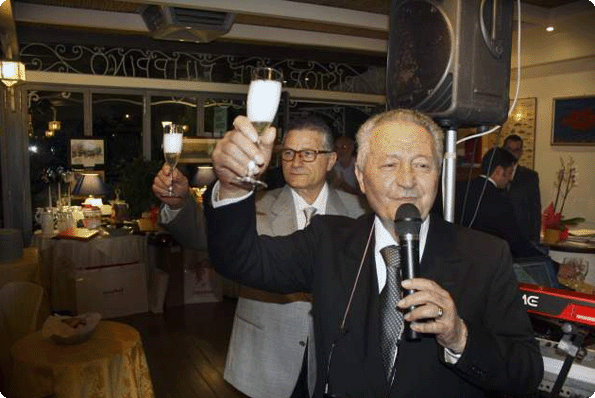Lipari – 2010 is a year that provides an historical birthday for the Italian restaurant industry. The restaurant “Filippino,” local historian of Lipari celebrates his first century of activity.
Restaurant belonging to the circuit of the great local of the tradition of Mediterranean cuisine, “Filippino” proposes from 1910 the typical flavours of aeolian and sicilian cuisine.
Born by the will of Filippo Cesare Bernardi that started the history of the local to the early twentieth century (when it was still called “Belvedere”), “Filippino” has seen seated at his tables, figures and celebrities who have made the history of Italy and not only. From Monet (who paid the bill with a picture), to Paola di Liegi, to Edda Ciano, from the movie stars of the film after the war to the former President of the Republic Oscar Luigi Scalfaro.
Personalities and exceptional presences enchanted by the quality of the flavours and by the cuisine of the restaurant, but also by the unique setting in which “Filippino” is inserted.
Lipari and the Aeolian Islands are considered a true natural paradise, an enchanted environment where the sea, the green and the volcanic nature of the archipelago create a unique landscape mix.
Today the restaurant is managed by Antonio Bernardi, a direct descendant of Filippo Cesare, so as his brother Lucio “chef” now internationally renowned, and together they work to ensure continuity of tradition and authenticity of the flavours that from 100 years the famous local offers. A century of taste, a century of quality, a century of professionalism. A century of “Filippino.”
Filippino’s restaurant was like a royal palace. It Stood (and still does) on the open ground in front of the town hall, almost up against the threshold of the acropolis, where the civilisation of centuries and millennia would arrange to meet for a synthesis of time that would become history.
Filippino was a symbol, a name that drew so many things together: a tradition of family industry, a desire to take life on, a love of one’s work, a rigour in professional ethics, an indefatigability in sacrifice, a respect for others and one’s own person, a protection of personal dignity, a desire to travel a pathway almost for a silently held wish not to end there. In sum, a passion for living.
They were all virtues and as a boy he realized this little by little. In those years professor Bernabò Brea indeed demonstrated that the world came from far away bringing the most ancient civilisations to light with the excavations that started from Piano Conte to finish who knows where.
The piano notes of Sergiu Celibidache assisted the moving beauty of a nature that from every viewpoint opened to hope: they were the landscapes that a Swiss tourist who never again detached himself from the island, Edwin Hunziker, entrusted continuously to his lovely painting; in the evening, the ditties of Ciccio Mondello would accompany the thrills of love of the first holiday makers arriving from France, from Germany and from Holland.
But everything, absolutely everything was as if it revolved around the “restaurant” that each evening in summer took on the air of a “succulent” conversation club, an appointment which it was impossible not to keep, to exchange and hear the day’s news, the confidences, the curiosities and the comments.
Filippino moved among the tables with the familiarity of a demiurge who knows what guests expect of him, like a friend who knows the art of confidentiality and the limits of discretion.
The boy looked up to him and learned. Everything can be learned from everybody. Once the boy spoke of Lipari to a Greek archaeologist and he asked him if he wanted to accompany him.
After the archaeological visit we will lunch at Filippino’s – the boy told him. You who have travelled so widely will realise that you find yourself in one of the best restaurants in the world.
